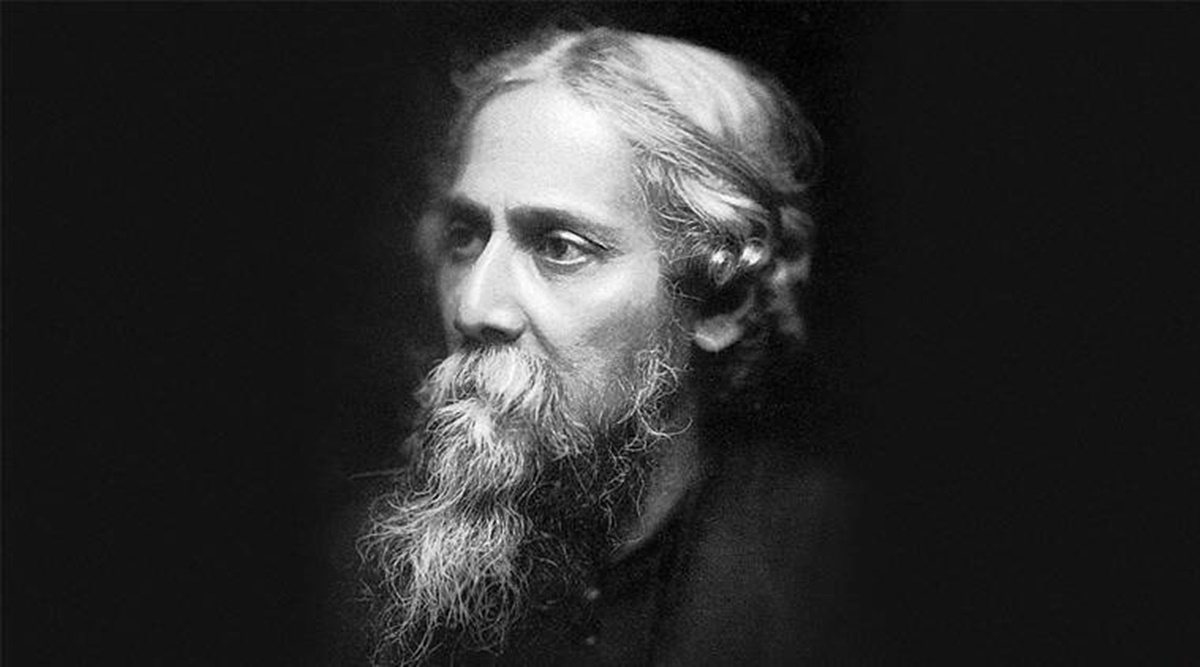Updated: August 9, 2021 7:04:52 pm
 In the run-up to Independence Day, it would be appropriate to revisit Rabindranath Tagore's idea of a free nation, presented in his poem, ‘Where the mind is without fear…’.
In the run-up to Independence Day, it would be appropriate to revisit Rabindranath Tagore's idea of a free nation, presented in his poem, ‘Where the mind is without fear…’. Written by Jyothi S
With celebrations about to begin to mark 75 years of political freedom from the colonial yoke, it is time to revisit the makers of India’s intellectual life in modern times. It’s also time to rekindle the debate on the links between political and intellectual freedoms. Unlike European countries, from where we have borrowed the concept of a nation, India’s strength lies in its diversity of different cultures, castes, religions, languages. In Australia and America, colonisers forcefully brought in oneness by almost totally exterminating the native population. In contrast, India has a unique history of tolerance for whoever wished to make it their home. Therefore, aggressive nationalism goes against the idea of India – it is highly impractical as well.
One prominent public intellectual who had — and still has — enormous influence on the Indian way of thinking is Rabindranath Tagore. In the run-up to Independence Day, it would be appropriate to revisit his idea of a free nation, presented in his poem, ‘Where the mind is without fear…’. This poem was published in 1910, as a part of the collection, Gitanjali. Although these lines were written much before India got political freedom, it seems we still haven’t grasped Tagore’s concept of independence, a century after their publication.
Tagore’s holistic vision of a nation seems utopian through the lens of contemporary nationalism. However, it remains salient at a time when the concept of global community is becoming embattled – while the need for such bonds has never been more important.
Tagore says that the citizens of a truly free nation would live without any fear of other individuals and of the establishment bulldozing their rights or hurting their dignity. When the mind is filled with constant fear of the unknown, then the higher possibilities of human life can’t be achieved. A fearless mind is a basic necessity that a free nation must give its citizens.
The next important quality of a free nation in Tagore’s vision is “self-respect” — that citizens won’t have to bow down to the whims of the powerful. A free nation doesn’t discriminate amongst its citizens or hold them hostage to caste, class, gender, language or religious differences.
Most importantly, a free nation provides knowledge, free of cost to all its citizens. Though successive governments in independent India have made primary education free, they have paid little attention to the quality of education — private players who prospered in the education sector too have rarely been equal to this task. Tagore envisions a free country where education is a basic human right, provided by the state, free of cost and without any discriminations.
Next, Tagore shares his views on “unity in diversity’, which is the true essence of the culture of this soil. He doesn’t want India to be broken into fragments and divided by thick walls built in the name of caste, religion, race or language. Unfortunately, the poet’s fears have come true.
Tagore cautioned people against building an easy life on the foundation of lies — our words, he says, should come from the depth of truth. The dishonest shouldn’t make their way to public platforms or receive any recognition.
Tagore sums up his philosophy of life with these lines: “Tireless striving stretches its arms towards perfection”. According to him, constantly reforming oneself to evolve as one’s better self, is the ultimate pursuit of human existence. Interestingly, Tagore also believed that the quest for perfection is a never-ending one.
Tagore emphasises the need to nurture “clear reasoning” against the deep-rooted superstitions among its citizens. He compares reasoning to a clear stream, losing its way in the desert of superstitions. The salience of this observation can hardly be overstated at a time when the minority that questions and criticises the prevalent belief system is facing a backlash – the desert, it seems, is swallowing the clear stream.
Tagore speaks of the maturity a person gains, as she walks on the self-created path, inching towards perfection, gradually becoming more forgiving and accommodative.
Tagore envisioned an India that would accomplish this true state of freedom — and not mere political freedom from the British. As we attain 75 years of Independence, let’s ask ourselves, how we have done on the poet’s touchstone
The writer is assistant professor of English, Tumkur University
- The Indian Express website has been rated GREEN for its credibility and trustworthiness by Newsguard, a global service that rates news sources for their journalistic standards.

